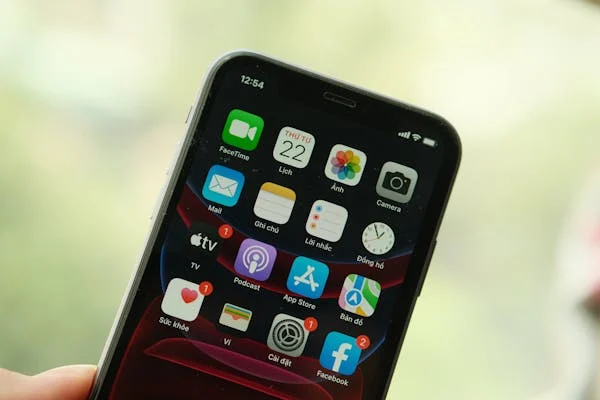Mobile apps have revolutionized how we live, work, and play, becoming indispensable tools in our daily routines. As the mobile app industry continues to expand, driven by technological advancements and changing user needs, several key trends and innovations are shaping its future.
Artificial Intelligence and Machine Learning
Artificial Intelligence (AI) and Machine Learning (ML) are at the forefront of mobile app development, enabling apps to provide personalized and intuitive user experiences. AI-driven apps can analyze user behavior and preferences, offering customized content and recommendations. For instance, streaming services like Netflix use AI to suggest movies and shows based on viewing history, while virtual assistants like Siri and Google Assistant leverage AI to understand and respond to user queries.
Augmented Reality and Virtual Reality
Augmented Reality (AR) and Virtual Reality (VR) are transforming mobile apps by offering immersive and interactive experiences. AR apps, such as Pokémon GO and Snapchat filters, blend digital elements with the real world, enhancing gaming, retail, and social media experiences. VR, although more prevalent in gaming, is expanding into education and training, providing simulated environments for learning and practice.
5G Technology
The rollout of 5G technology is set to revolutionize mobile app capabilities, offering faster download and upload speeds, lower latency, and improved connectivity. This will enable developers to create more sophisticated and responsive apps, particularly in areas like real-time gaming, AR/VR, and IoT. With 5G, apps can handle high data loads and provide seamless performance, enhancing user satisfaction.
Internet of Things (IoT) Integration
IoT integration is expanding the functionality of mobile apps, allowing users to control and monitor connected devices through their smartphones. From smart home systems like Google Home and Amazon Alexa to wearable fitness trackers, IoT-enabled apps provide convenience and efficiency. As IoT devices become more prevalent, the demand for apps that can manage these devices will continue to grow.
Blockchain Technology
Blockchain technology is being integrated into mobile apps to enhance security, transparency, and efficiency. Particularly in finance, healthcare, and supply chain management, blockchain ensures secure transactions and data integrity. Mobile wallets, such as Trust Wallet and crypto exchange apps, utilize blockchain to offer secure financial services, while healthcare apps use it to protect patient data.
Progressive Web Apps (PWAs)
Progressive Web Apps (PWAs) are web applications that provide a native app-like experience. They are fast, reliable, and can work offline, making them an attractive option for businesses aiming to deliver a seamless user experience without requiring app store downloads. Companies like Twitter and Starbucks have successfully implemented PWAs to increase user engagement and accessibility.
Mobile Payment Solutions
The adoption of mobile payment solutions is on the rise, with apps like Apple Pay, Google Pay, and Samsung Pay simplifying secure transactions. The COVID-19 pandemic has accelerated the shift towards contactless payments, further boosting the popularity of mobile payment apps. These apps offer convenience and security, making them essential tools for modern consumers.
Enhanced Security Measures
As mobile apps handle increasingly sensitive information, security is a paramount concern. Developers are incorporating advanced security features such as biometric authentication, end-to-end encryption, and secure APIs to protect user data. This focus on security is crucial in building user trust, especially for apps in the finance, healthcare, and enterprise sectors.
On-Demand Apps
On-demand apps, like Uber, Airbnb, and DoorDash, have transformed various industries by offering immediate access to services. These apps cater to the growing consumer demand for convenience and quick service, providing everything from transportation and accommodation to food delivery and home services. The on-demand economy continues to thrive, driven by the efficiency and accessibility these apps offer.
Wearable App Integration
The rise of wearable devices, such as smartwatches and fitness trackers, is driving the development of apps tailored for these gadgets. Wearable apps offer real-time data and insights, particularly in health and fitness. As wearable technology advances, the integration of these devices with mobile apps will become more sophisticated, enhancing their utility and appeal.
Conclusion
The mobile app industry is poised for continued growth and innovation, driven by advancements in AI, AR/VR, 5G, IoT, and other technologies. These trends are shaping the future of mobile apps, making them smarter, more immersive, and highly personalized. For developers and businesses, staying abreast of these trends is essential to capitalize on the vast potential of mobile apps in the years to come.
